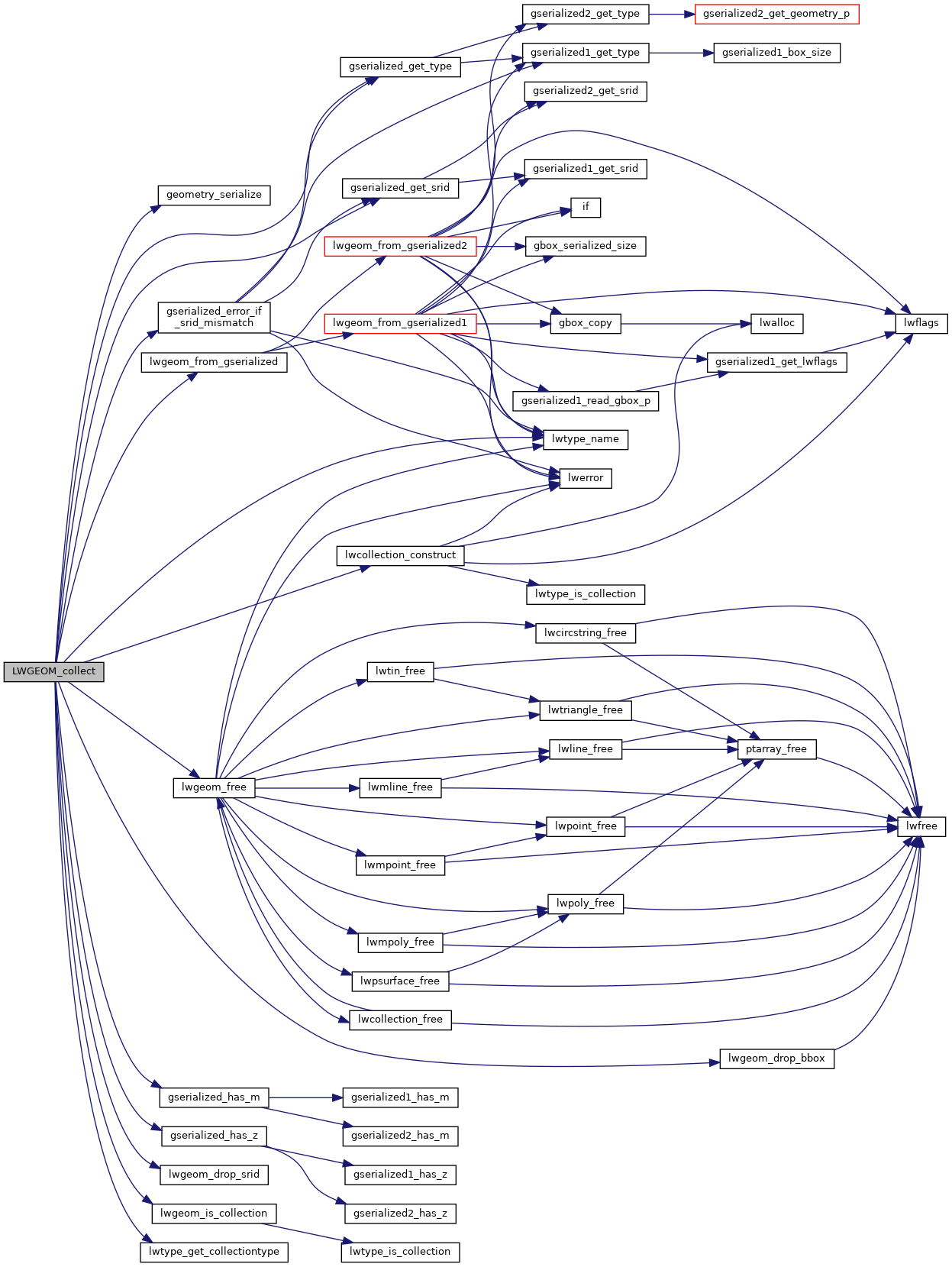◆ LWGEOM_collect()
| Datum LWGEOM_collect | ( | PG_FUNCTION_ARGS | ) |
Definition at line 1139 of file lwgeom_functions_basic.c.
void gserialized_error_if_srid_mismatch(const GSERIALIZED *g1, const GSERIALIZED *g2, const char *funcname)
Definition: gserialized.c:404
int32_t gserialized_get_srid(const GSERIALIZED *g)
Extract the SRID from the serialized form (it is packed into three bytes so this is a handy function)...
Definition: gserialized.c:126
int gserialized_has_m(const GSERIALIZED *g)
Check if a GSERIALIZED has an M ordinate.
Definition: gserialized.c:185
LWGEOM * lwgeom_from_gserialized(const GSERIALIZED *g)
Allocate a new LWGEOM from a GSERIALIZED.
Definition: gserialized.c:239
int gserialized_has_z(const GSERIALIZED *g)
Check if a GSERIALIZED has a Z ordinate.
Definition: gserialized.c:174
uint32_t gserialized_get_type(const GSERIALIZED *g)
Extract the geometry type from the serialized form (it hides in the anonymous data area,...
Definition: gserialized.c:89
uint32_t lwtype_get_collectiontype(uint8_t type)
Given an lwtype number, what homogeneous collection can hold it?
Definition: lwgeom.c:1114
void lwgeom_drop_bbox(LWGEOM *lwgeom)
Call this function to drop BBOX and SRID from LWGEOM.
Definition: lwgeom.c:664
int lwgeom_is_collection(const LWGEOM *lwgeom)
Determine whether a LWGEOM can contain sub-geometries or not.
Definition: lwgeom.c:1079
const char * lwtype_name(uint8_t type)
Return the type name string associated with a type number (e.g.
Definition: lwutil.c:216
LWCOLLECTION * lwcollection_construct(uint8_t type, int32_t srid, GBOX *bbox, uint32_t ngeoms, LWGEOM **geoms)
Definition: lwcollection.c:42
GSERIALIZED * geometry_serialize(LWGEOM *lwgeom)
Definition: liblwgeom.h:429
Definition: liblwgeom.h:443
References COLLECTIONTYPE, geometry_serialize(), gserialized_error_if_srid_mismatch(), gserialized_get_srid(), gserialized_get_type(), gserialized_has_m(), gserialized_has_z(), lwcollection_construct(), lwgeom_drop_bbox(), lwgeom_drop_srid(), lwgeom_free(), lwgeom_from_gserialized(), lwgeom_is_collection(), lwtype_get_collectiontype(), lwtype_name(), and LWGEOM::type.
Here is the call graph for this function:
